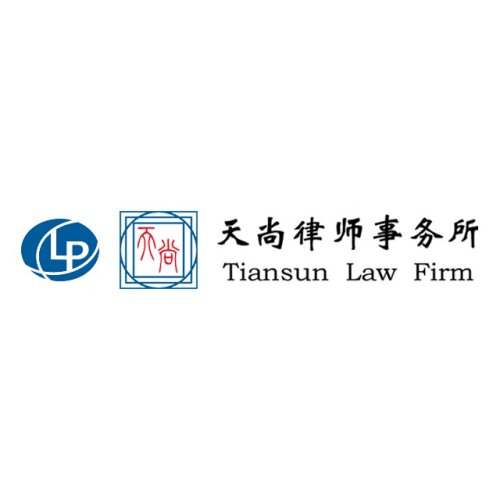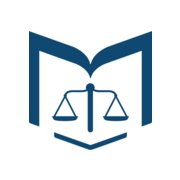Best Ethics and Professional Responsibility Lawyers in Beijing
Share your needs with us, get contacted by law firms.
Free. Takes 2 min.
List of the best lawyers in Beijing, China
About Ethics and Professional Responsibility Law in Beijing, China
Ethics and Professional Responsibility laws in Beijing, China, focus on maintaining and enforcing standards of conduct for professionals engaged in various fields such as law, medicine, and business. These laws aim to uphold ethical principles, ensure compliance with relevant regulations, and promote accountability among professionals. In Beijing, significant emphasis is placed on aligning professional conduct with the moral standards set by both the government and industry-specific regulatory bodies. Legal frameworks are continually updated to address new ethical challenges and professional conduct issues, reflecting both global trends and unique domestic needs.
Why You May Need a Lawyer
Legal guidance in ethics and professional responsibility can be crucial for individuals and organizations facing complex ethical dilemmas or allegations of professional misconduct. Common situations where one might need a lawyer include:
- Handling allegations of professional malpractice or negligence.
- Navigating ethical dilemmas that may compromise professional integrity.
- Responding to investigations or inquiries by professional regulatory bodies.
- Addressing conflicts of interest that could affect professional performance.
- Ensuring compliance with codes of ethics set by professional associations.
- Seeking advice on whistleblower protections or obligations.
- Reviewing contractual obligations related to ethical standards in professional environments.
Local Laws Overview
Beijing's legal landscape concerning ethics and professional responsibility is influenced both by national laws and local regulations. Key aspects include:
- National Standards: China’s national laws, such as the Civil Code and Criminal Law, outline basic principles of ethical conduct and penalties for violations.
- Professional Regulations: Various professions have their own regulatory bodies that enforce specific codes of ethics and disciplinary measures for unethical conduct.
- Government Oversight: Governmental agencies actively oversee and occasionally intervene in professional practices to ensure compliance with ethical norms.
- Judicial Guidance: The courts play a role in interpreting ethics-related legislation, setting precedents that may affect future cases.
Frequently Asked Questions
What defines professional misconduct in Beijing?
Professional misconduct in Beijing typically includes actions that violate the ethical codes or regulatory standards set by professional bodies, such as negligence, fraud, dishonesty, and breach of fiduciary duties.
How are ethical standards enforced among professionals?
Ethical standards are enforced through a combination of professional regulatory bodies, government regulations, and judicial oversight which may involve disciplinary actions, fines, or revocation of professional licenses.
Can I report unethical behavior anonymously?
Yes, many professional associations and regulatory bodies provide procedures for anonymous reporting of unethical behavior to encourage transparency and accountability.
What are the consequences of violating professional ethics in Beijing?
Consequences can range from disciplinary actions such as fines or reprimands to criminal charges and loss of professional licenses depending on the severity of the violation.
Are there specific laws governing ethics in the legal profession in Beijing?
Yes, the legal profession in Beijing is governed by detailed codes of conduct and ethical standards implemented by the Ministry of Justice and local bar associations.
How do I find a lawyer specializing in ethics and professional responsibility?
You can find specialized lawyers through local bar associations, legal directories, or by consulting law firms with expertise in this field.
What is the role of government agencies in ethics oversight?
Government agencies are responsible for setting general ethical guidelines, monitoring compliance, and intervening when necessary to maintain standards across different professions.
Are there mechanisms for conflict resolution in ethical disputes?
Yes, there are established mechanisms like mediation and arbitration to resolve ethical disputes without resorting to litigation, which can be more time-consuming and costly.
What should I do if accused of unethical behavior?
If accused of unethical behavior, it is critical to seek legal counsel immediately to understand the implications, prepare a defense, and respond appropriately to inquiries or investigations.
How often are ethical standards updated in Beijing?
Ethical standards are periodically reviewed and updated by professional bodies and government authorities to reflect changing societal values and industry practices.
Additional Resources
For individuals seeking more information or assistance, the following resources may be helpful:
- Beijing Municipal Justice Bureau: Provides guidance on legal standards and professional conduct.
- China National Lawyers Association: Offers resources and support for legal professionals in ethical matters.
- Professional regulation commissions specific to various industries that set and enforce ethical standards.
- Local legal aid clinics or university law centers which may offer free or reduced-cost consultations.
Next Steps
If you need legal assistance in matters of ethics and professional responsibility in Beijing:
- Identify the specific nature of your concern and whether it falls under professional ethics or broader legal issues.
- Seek recommendations for legal professionals with expertise in your specific area of need, such as lawyers specializing in medical or legal ethics.
- Request consultations to understand your legal options and potential strategies for addressing the issue.
- Gather all relevant documentation and evidence related to your case to present to your legal counsel.
- Review the advice provided by your lawyer carefully and consider any recommended actions or remedies.
Lawzana helps you find the best lawyers and law firms in Beijing through a curated and pre-screened list of qualified legal professionals. Our platform offers rankings and detailed profiles of attorneys and law firms, allowing you to compare based on practice areas, including Ethics and Professional Responsibility, experience, and client feedback.
Each profile includes a description of the firm's areas of practice, client reviews, team members and partners, year of establishment, spoken languages, office locations, contact information, social media presence, and any published articles or resources. Most firms on our platform speak English and are experienced in both local and international legal matters.
Get a quote from top-rated law firms in Beijing, China — quickly, securely, and without unnecessary hassle.
Disclaimer:
The information provided on this page is for general informational purposes only and does not constitute legal advice. While we strive to ensure the accuracy and relevance of the content, legal information may change over time, and interpretations of the law can vary. You should always consult with a qualified legal professional for advice specific to your situation.
We disclaim all liability for actions taken or not taken based on the content of this page. If you believe any information is incorrect or outdated, please contact us, and we will review and update it where appropriate.
















